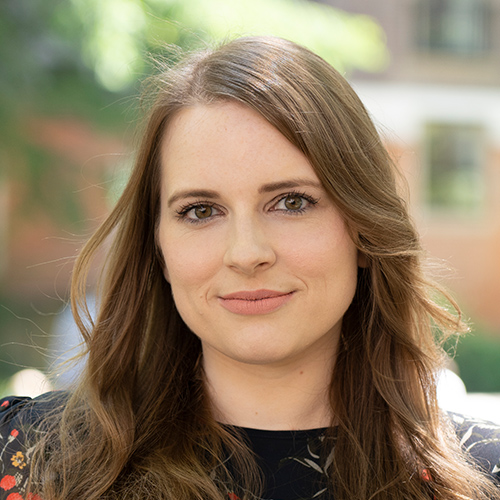‘Well, I may be fat, but you’ll always be ugly’.
This was my usual riposte to anyone who dared call me fat at school. I heard it on Jeremy Kyle circa 1999 and, like every sassy adolescent and diehard Buffy fan, stored it in my personal bank of insults and retorts to use in times of great need. A metaphorical vampire-expelling kick to the gonads.
See, I’ve always been rather overweight. I was born with an unquenchable appetite for food. Every day after school, I would purchase abundant quantities of sweets with the excuse that I was ‘just stocking up for the week’; friends’ parents loved me because I finished off third helpings — ‘Naomi will eat the last pizza, won’t she?’ — and at sleepovers I could munch away bags of Cadbury buttons, long after my pals had gratified their appetites. For years, I had no idea why I was this way. I imagined that I was just greedy, weak, or genetically ill-fated.
Finally I discovered at university that I have an endocrine disorder called PCOS. Turns out, life with PCOS is a vicious cycle: the key to overcoming the symptoms is weight loss and diet, but, due to hormonal havoc and insulin resistance, one of the chief symptoms is itself being overweight. Receiving my diagnosis was liberating, but I knew I had an uphill battle to control a body that was essentially working against me. I needed a diabetic-friendly diet; a diet that was kind to my insulin levels. In other words, I had to quit sugar.
But there was one problem: I was a sugar addict.
The Oxford Dictionary describes addiction as being ‘physically and mentally dependent on a particular substance’ [1]. The word ‘addict’ may seem extreme, but there is no denying it: I was completely dependent on sugar. I couldn’t go a single day without consuming the stuff. This was partly chemical (recent research has suggested that sugar is as addictive as cocaine) [2], but also, as I gradually came to realise, something much deeper.
It wasn’t until I finally went ‘cold-turkey’, nearly ten years after my diagnosis that I realised how strong my addiction was. The cravings and physical withdrawal symptoms I experienced were certainly far from pleasant, but the emotional withdrawal was far worse. See, I was actually deeply attached to sugar; I ran into its saccharine arms whenever life got difficult. Heartache, tiredness, and even boredom could all be salved with the balm of sweet candy goodness.
In this way, sugar functioned like a drug for me. Whilst it provided momentary escape, it never truly satisfied, thus leading me to consume it in increasing amounts. It also led to feelings of shame, as I secretly and greedily ate myself into a syrupy coma. I was left feeling as bereft as I’d been before I chowed the stuff. Worse, even.
Now, you may be wondering why on earth I’m harping on about my sorry sugary tale. Aren’t we already saturated with depraved stories of ‘the addict’ — those poor souls who slavishly send their lives into the oblivion of drugs, drink and sex? I think it’s fair to say we consider ourselves above that extreme kind of dependence, don’t we? We love to read voyeuristically about celebrities taking stints in rehab, after yet another dramatic fall from the wagon, content in our ability to remain untouched by such appalling levels of degradation. Yet, given the definition of addiction as ‘physical and mental dependence’, could you wholeheartedly claim that you have no addiction of your own, however slight it may be?
We all find ourselves dependent on something; it’s just some things are more socially acceptable than others. The potential is endless: shopping, mindfulness, social media, relationships, work, Netflix. Like sugar, they can all be damaging when we over-consume. We long for some escape from our mundane lives, hoping against hope that these addictions will one day truly satisfy.
But they never do. For something to be addictive, it must inherently possess unsatisfactory qualities. If my desire for such an entity is never sated, I will continue to consume it in search of this gratification. Whatever form our addictions take, they only mask a deeper need—a longing for something or someone to fill our souls.
Seventeen years ago, I came to believe that that someone is God. He fulfils that longing within us, more than anything or anyone else ever could. I will always struggle against the lie that I only need this or that to make me happy, that I don’t really need God. That is part of the human condition. But do I settle for destructive dissatisfaction, or do I seek after something more?
This is what Easter is about. That there is something more than the banal flavours of a palate dulled by over-saturation. That, as God meets us in the space in our hearts that we try to fill with ‘stuff’, we can know freedom from our addictions. This is what Jesus meant when he said he had come to ‘set the captives free’ [3]. Is this not more relevant to our self-abusing world than ever? As lovely as a Lindt Easter Bunny may be, there is nothing sweeter than the lasting satisfaction that is entirely within our grasp, if only we would taste it and see.


